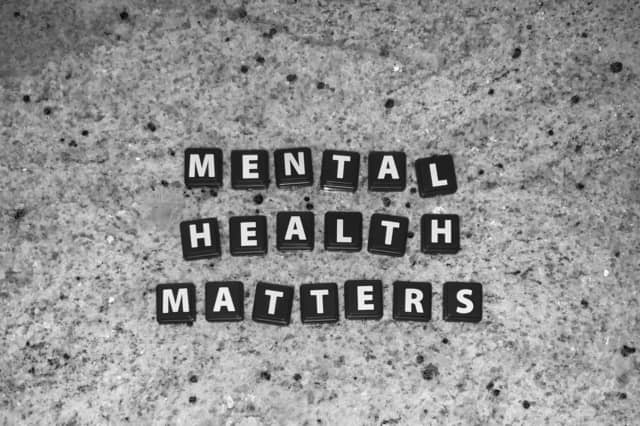Mental Health Crisis in Startups: How entrepreneurs can better manage their mental health post-pandemic
As an entrepreneur, your life might be a complete roller coaster. The highs of a successful launch, a fantastic new product, and finally spending quality time with your family. Then the lows hit when something goes wrong, customers complain, or you’re simply exhausted.
Normally, we all go through highs and lows, but what if the lows are caused by something other than the normal emotions, we all go through? In other words, when we begin to put our business ahead of ourselves, our mental health is largely impacted.
All of this, however, can contribute to a decline in mental health, which many entrepreneurs face. It’s easy to see why.
Why do entrepreneurs have a higher risk of mental breakdowns?
Entrepreneurs are roughly twice as likely as the general population to suffer from depression. There are numerous distinct hurdles that come with starting a business. With 90% of start-ups failing within the first year (source), entrepreneurs are under pressure to deliver results in the face of near-certain failure.
The following are some of the challenges that entrepreneurs face:
- Stress Management: Entrepreneurs’ lack of self-care leads to mental and physical stress, which has a negative impact on mental health.
- Anxiety: Entrepreneurs are frequently faced with difficult decisions, and the pressure to make the best decision can be extremely stressful.
- Isolation: Many entrepreneurs lack the social network needed to maintain good mental health due to the long hours and focus required to start and run a business.
Entrepreneurs’ mental health suffers as a result of long hours, bad sleep habits, and a lack of social life. According to a survey, 62 percent of business owners experience depression at least once a week.
Why has the COVID-19 pandemic magnified the gravity of the scenario?
The coronavirus pandemic has turned life on its head. Loss of physical touch with friends and loved ones, job loss and wage cuts, and the death of loved ones – all of these factors contributed to the health crisis – have increased stress for millions of people. Our capacity to rely on stable personal calendars, as well as in-person events with colleagues and time with loved ones, has all but evaporated. Despite the gruelling and unrelenting path that entrepreneurship can be, taking care of one’s mental health has enabled entrepreneurs to learn, relax, and receive confirmation that they are on the correct track.
As a result, productivity has decreased, substance misuse is on the rise, while depression and anxiety have reached new highs. As we begin to emerge from the crisis, entrepreneurs have a lot of catching up to do. Many of us are tempted to return to work without taking some time off for our mental and physical health, but anyone in the mental health industry will tell you that this is particularly a bad idea.
Taking care of oneself has never been more vital than it is now, so here are a few mental health tips for entrepreneurs that everyone should consider.
Mental Health Tips For Entrepreneurs

- Create a support system and seek out additional resources
Before it becomes an issue, give yourself and your mental health more attention. This can begin with self-care, but it can also extend to obtaining information, assistance, and resources. That can support your journey and also professionally assist you through tough times.
- Make contact with others or form a business network
There will never be a time when you are by yourself. You’re surrounded by a diverse set of entrepreneurs, many of whom have gone through similar situations and may have dealt with mental health concerns. Discover who your allies are and where you can get help if you need it.
- Don’t put your sleep on the line
Sleep deprivation has been dubbed “the new smoking” among entrepreneurs by Arianna Huffington. It was once glamourized and seen as a badge of honour and hard work, particularly among men, but is now increasingly recognised as a blight on people’s physical and mental health.
Make a constant aim of 7 hours. Of course, the occasional glitch is to be expected, but chronic sleep deprivation will sap your vitality, productivity, creativity, and mood.
- Look for a release
Allowing oneself time to refuel is critical so that we may return to our work with new masses. This means that whenever you take a break, even if it’s only for 15 or 30 minutes, you must entirely unplug from your work.
That could be something physically active, such as hiking, or something creative, such as painting, or other hobbies and activities you enjoy, such as gardening, spending time with your children and pets, or even reading a novel.
- Set Clear Limits
A busy calendar and mind will suffocate your capacity to develop something exceptional, thus an entrepreneur must manage their time carefully to avoid overloading themselves. Rather than attending back-to-back meetings, an entrepreneur should spend time thinking about what their company and team should be doing.
Furthermore, achieving work-life balance has always been a difficulty for businesses, and it is even more so now, given the increased challenges. However, the years 2020 and 2021 have introduced new difficulties to entrepreneurs’ boundaries, including new challenges to maintaining businesses viable.
- Network with fellow entrepreneurs
Maintaining your mental health and wellbeing requires a strong support network. Relationships and connections are a basic and essential need for social creatures, second only to physical and safety demands in importance. Reaching out to other entrepreneurs, coworkers, or friends to simply chat about your problems can be really beneficial in resolving them.
When we normalise talking about mental health, we discover not only new ways to survive, but also that we aren’t alone in our struggles.
- Disconnect the worth of your company from your own self-worth.
Entrepreneurs have a tendency to identify themselves based on the success of their businesses, which can be harmful to our mental health in the long term.
In challenging situations, entrepreneurs may end up devoting more time to their company, attempting to make things work, neglecting their friends, family, and personal lives. Make time to practise self-love and understand that the numbers on the balance sheet don’t determine who you are or how much you’re worth.
- Boost your mental toughness
Building your mental resilience will help you weather the lows of running a business, as well as shifting your focus from happiness to contentment.
A good business leader is one who can maintain a positive attitude in the face of hardship and think rationally in the face of conditions that are out of their control. We all have the potential to become this person; all it takes is practise.
- Try not to put your personal finances on hold for the sake of your company.
The importance of boundaries cannot be overstated. They keep you from collapsing your personal or professional life. With little cash, you may be tempted to invest every last penny to save your company, but keep in mind that your company can be rebuilt if you can maintain your personal finances for the time being.
Running a business in these difficult circumstances may be a Herculean task, but keep in mind the light that lies ahead of all this gloom.
- Create Routines for Self-Care
As the modern mind is overstimulated by information overload in almost all areas, it’s more crucial than ever to keep track of your habits and if you’re taking time off to recuperate. In today’s fast-paced environment, classical approaches like exercise and fasting have become essential for restoring mind-body balance.
This is especially important for entrepreneurs because they are generally under a lot of stress and strain. Routine meditation and yoga are fantastic strategies to reduce anxiety and uneasiness while also improving one’s psychological health.
To conclude we’d want you to imbibe a quote the fact that –
Keep in mind that business is a marathon, not a sprint.
Many of the techniques we’ve suggested will assist you manage your mental health effectively. Be kind to yourself and remember that you aren’t alone.
But, as mental health awareness grows, we’re in a better position than ever to talk honestly about our concerns with one another.
Don’t bother with sales. Forget about profit. Your mental wellness is more important than anything else when it comes to your achievement. And once you’ve got it under control, everything else will fall into place.




